If we were to try to list all the greatest Black leaders in history, we’d be here for a very long time. Still, we want to provide some inspirational examples of influential Black leaders who changed the course of American history. These ten influential Black leaders advanced civil rights, reshaped American law, wrote the next chapter of literature, attained the highest political office in this land, and reset the conversation on racial justice in the midst of a pandemic.
Who are these influential Black leaders? Who are these Black heroes we should remember and honor?
Sojourner Truth
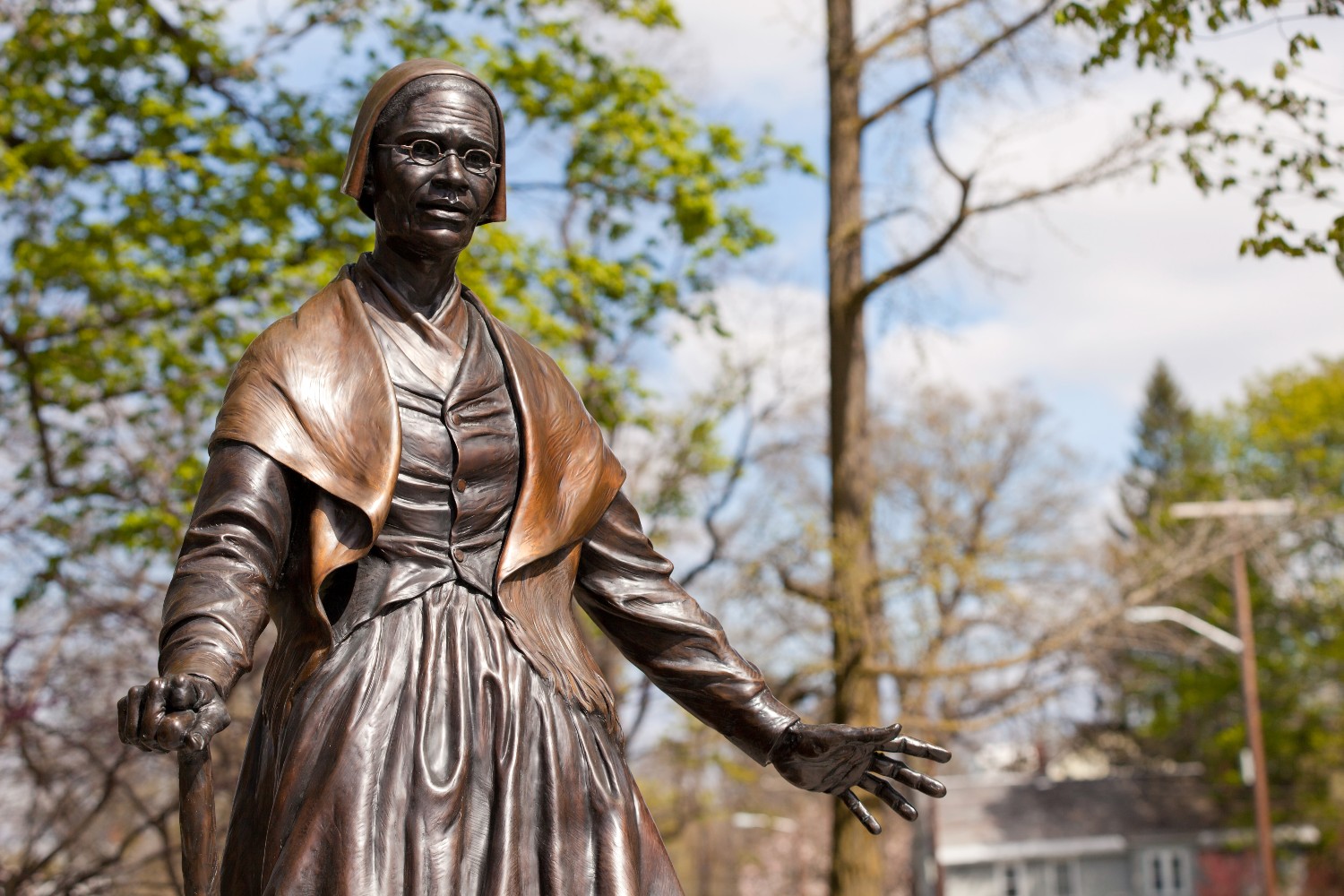
We can’t talk about the most influential Black leaders in history without examining the record of Sojourner Truth. Though her home state of New York technically began to abolish chattel slavery in 1799, Sojourner Truth still had to fight to free herself and her children — particularly after the man who claimed ownership went back on his promise to free her in 1826. After he sold her son Peter to another slaveholder in Alabama, Sojourner Truth took this fight all the way to court to secure Peter’s release and bring him home in 1828.
Though she never learned to read or write, Sojourner Truth nonetheless proved to be one of the greatest orators and activists of all time. Her 1851 Ain’t I a Woman speech at an Akron, Ohio, women’s conference not only linked the abolitionist and suffragette causes, but it also pushed both movements and the larger nation to recognize Black women as full and equal citizens. During the Civil War, Truth recruited Black men — including her own grandson, James Caldwell — to serve in the Union Army. Following the war, Truth continued her advocacy for desegregation, voting rights, women’s equality, prison reform, and death penalty abolition all the way to her death in 1883.
Frederick Douglass
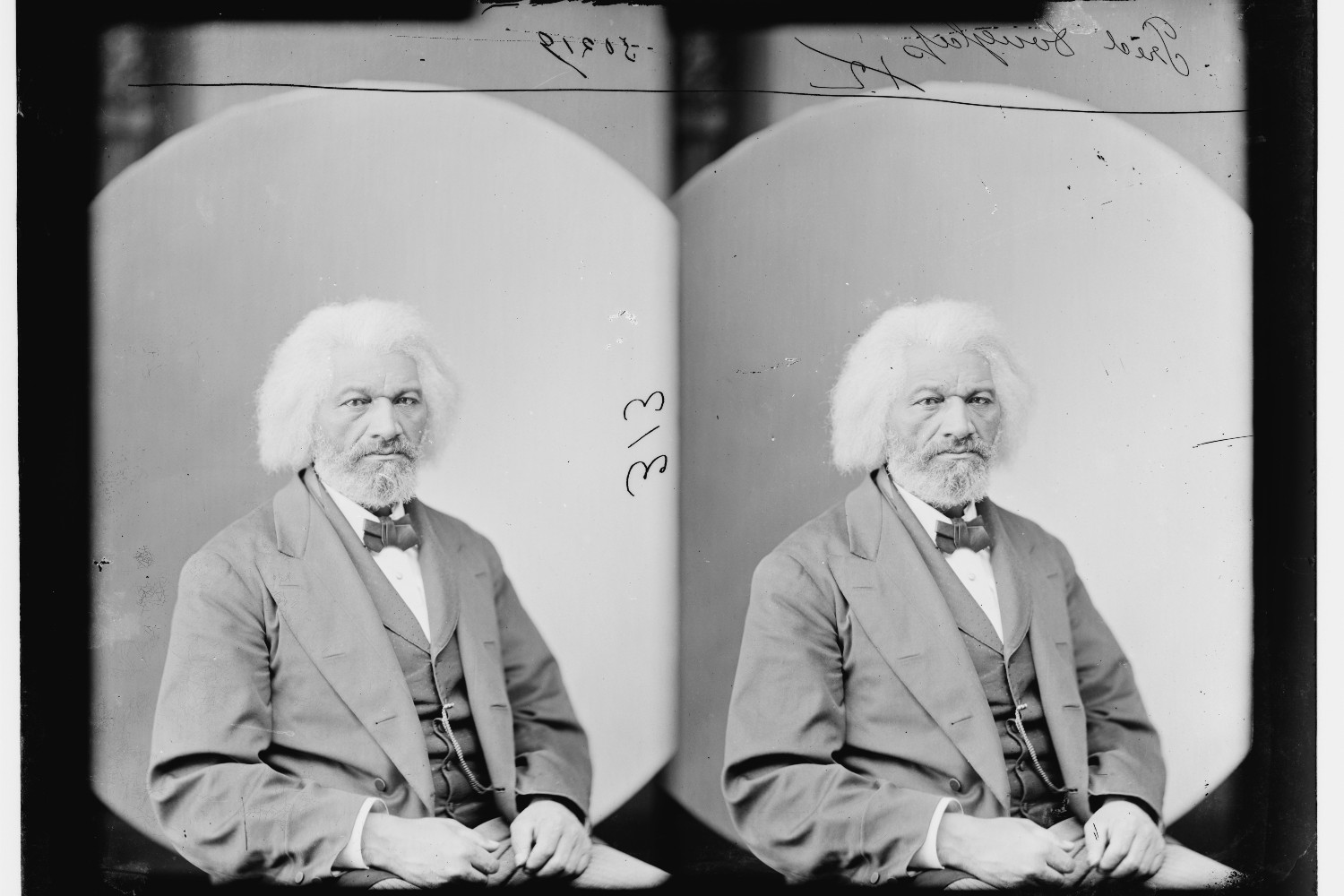
Frederick Douglass was born into slavery, yet he escaped Maryland at age 20, and he then declared himself a free man upon arrival in New York City. Douglass had taught himself how to read as a child, and he went on to travel across the U.S. and overseas as one of the greatest orators of the 19th century. Douglass not only published three autobiographies — Narrative of the Life of Frederick Douglass in 1845, My Bondage and My Freedom in 1855, and Life and Times of Frederick Douglass in 1881 — but he also bought his own printing press and launched The North Star newspaper in 1847.
Frederick Douglass may be best remembered for his work as an abolitionist movement leader, but his civil rights advocacy broadened and grew over the years. He famously linked the Black civil rights movement with the nascent women’s rights movement during the mid-19th century. He personally helped Black people escape slavery through the Underground Railroad. As the Civil War drew to a close, Douglass went into overdrive to fight for the 13th, 14th, and 15th Amendments to remove legally sanctioned racism from the U.S. Constitution. From the Reconstruction era onward, Douglass continued his work to secure liberty and equality for all.
Martin Luther King Jr.
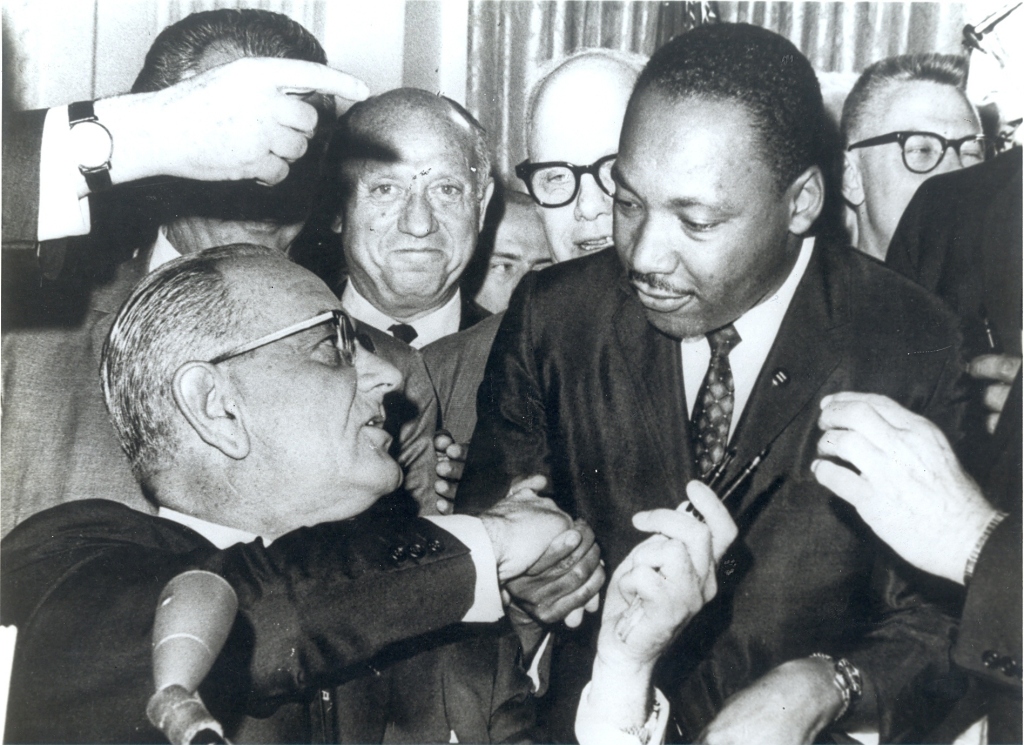
No list of influential Black leaders in history feels complete without mentioning the civil rights activist who eventually got a national holiday named after him. Dr. Martin Luther King Jr. first rose to prominence when he served as the spokesman for the 1955 Montgomery Bus Boycott, which was the campaign to win integration of the Montgomery, Alabama, bus lines. When he returned to Alabama in 1963 to push for desegregation in Birmingham, his Letter from a Birmingham Jail served as a critical manifesto for the African-American civil rights movement with Dr. King’s vision of nonviolent civil disobedience to achieve equity.
Later that year, Dr. Martin Luther King Jr. led the historic March for Jobs and Freedom (or the March on Washington), where he delivered the I Have a Dream speech that envisions a broader goal of full integration and full citizenship for Black Americans. The following year, he witnessed Congress’ passage of the Civil Rights Act, and he was the youngest person to ever win a Nobel Peace Prize. In 1965, Dr. King’s march from Selma to Montgomery played a major role in Congress passing the Voting Rights Act. Even though President Lyndon Johnson came around to support Dr. King’s vision for racial and economic justice domestically, Dr. King nonetheless spoke out against Johnson’s decision to escalate the Vietnam War in his 1967 Beyond Vietnam speech at New York City’s Riverside Church. When Dr. King came to Memphis, Tennessee, in April 1968 to support janitors on strike, a gunman assassinated him at the motel where he was staying.
Thurgood Marshall
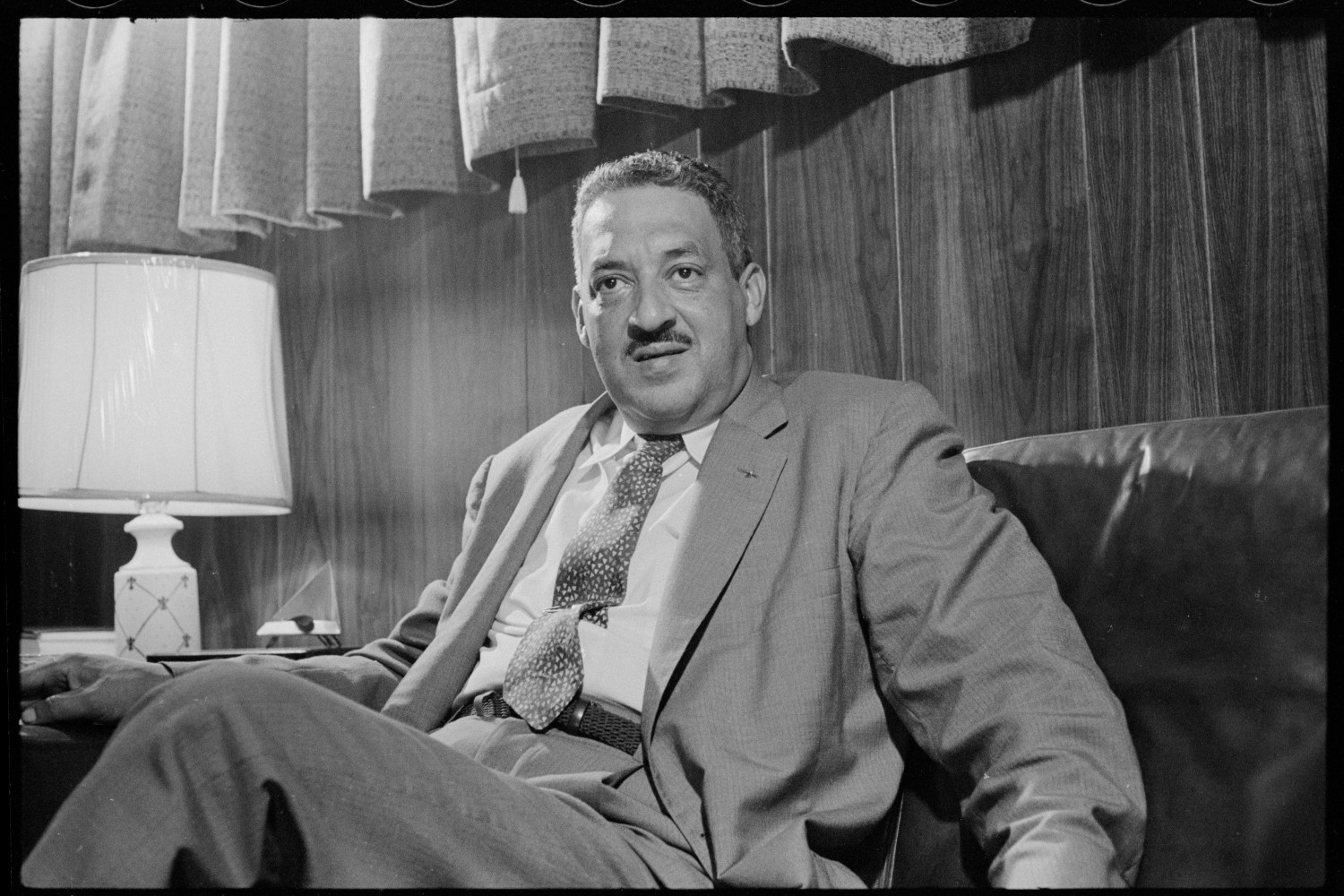
Shortly after he graduated from Howard University Law School, the young civil rights attorney Thurgood Marshall argued to the Maryland Court of Appeals in 1935 on behalf of a Black law student who was denied admission to the University of Maryland, and the Court ruled in their favor in Murray v. Pearson. Marshall began arguing cases at the U.S. Supreme Court, where he’d eventually win in 29 cases and score rulings to advance civil rights in voting, equal housing access, school desegregation, and more. Perhaps the best-known case that Marshall argued is Brown v. Board of Education, the landmark 1954 case that resulted in the end of de jure public school segregation.
Thirteen years after that Supreme Court decision, President Lyndon Johnson nominated Thurgood Marshall for the Supreme Court. Following Senate confirmation in 1967, Marshall became America’s first Black Supreme Court Justice. During his 24 years on the court, Marshall vociferously fought for civil rights, and he joined majority opinions in the 1972 Furman v. Georgia decision on the death penalty, the 1973 Roe v. Wade decision to establish national abortion rights, and the 1990 Chauffeurs, Teamsters, and Helpers Local No. 391 v. Terry decision that established a worker’s right to a jury trial in the event of the worker’s union breaching its duty of fair representation.
Maya Angelou
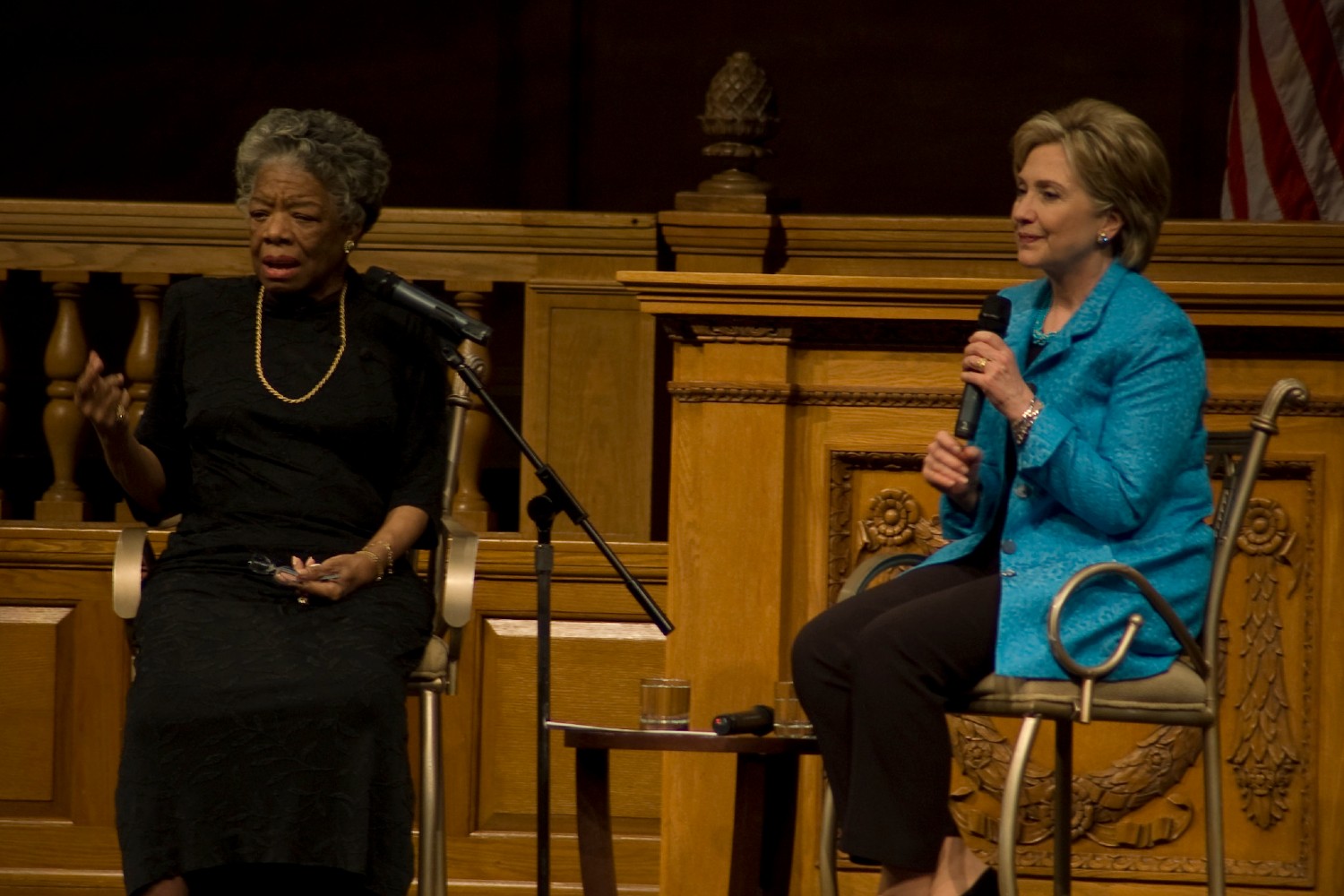
Maya Angelou took the literary world by storm with her 1969 autobiography I Know Why the Caged Bird Sings, where she vividly describes her journey from a girl who endured abuses spanning from racial segregation to sexual assault into a woman who knows her power and her worth. Angelou went on to write six more critically acclaimed autobiographies that would describe an epic journey that spanned from Angelou’s childhood in Arkansas to her return to Ghana to search for her ancestors’ stories.
In addition to her autobiographies, Maya Angelou was nominated for a Pulitzer Prize for her 1971 poetry book Just Give Me a Cool Drink of Water ‘fore I Diiie, she recited her poem On the Pulse of the Morning at President Bill Clinton’s 1993 inauguration, she hit the Billboard charts for her collaboration with the R&B group Ashford & Simpson on their 1996 album Been Found, and she directed the 1998 feature film Down in the Delta starring Alfre Woodard and Wesley Snipes. Angelou continued to advocate for civil rights all the way to her 2014 passing. And in 2021, the U.S. Mint announced that Angelou would be the first Black woman to appear on a quarter.
Marsha P. Johnson
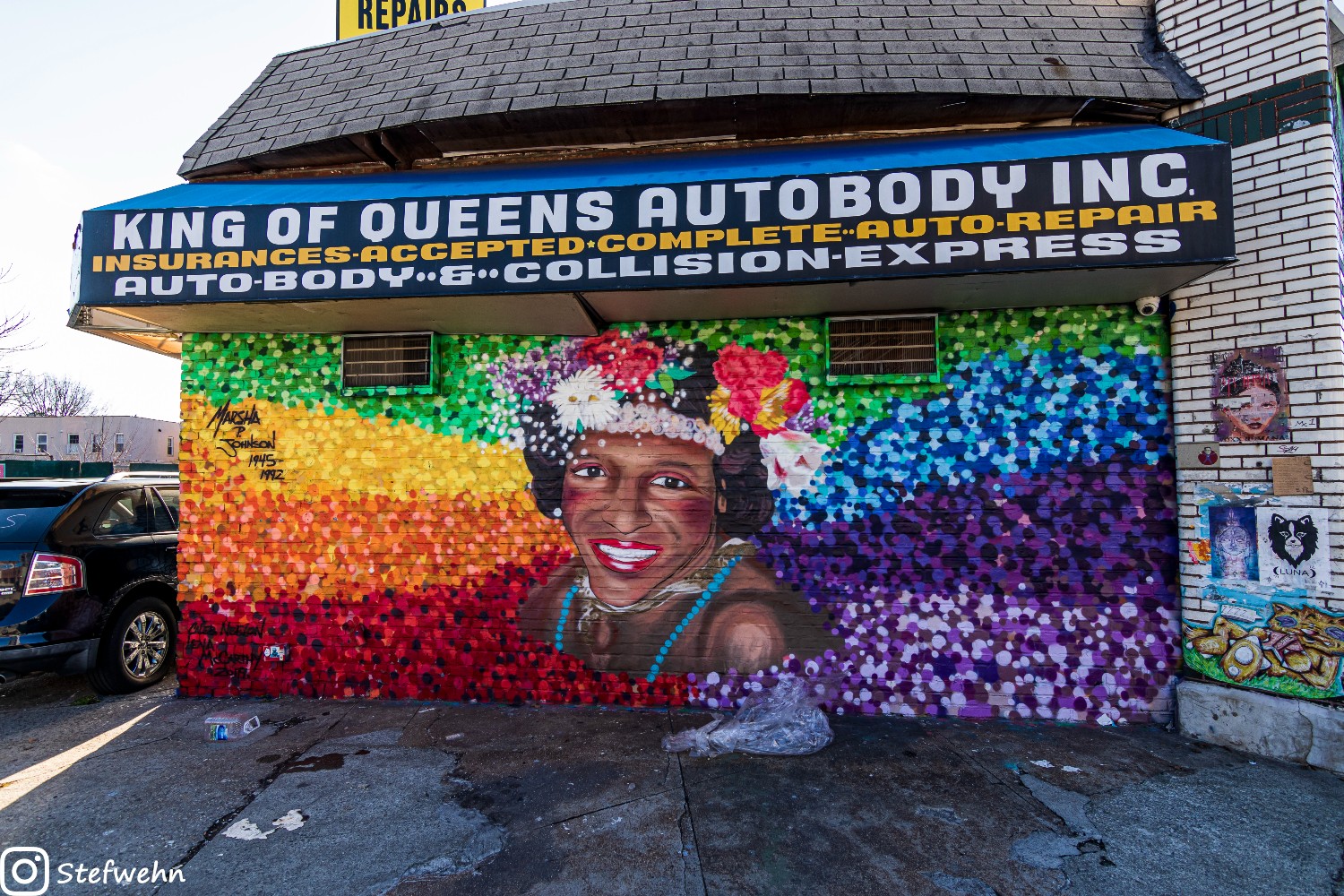
After graduating high school, Marsha P. Johnson moved to New York City with 15 dollars, a bag of clothes, and a whole lot of big dreams. She soon met fellow trans woman Sylvia Rivera, and Johnson taught her eventual lifetime friend how to survive the rough streets of New York in the 1960s, when homophobia and transphobia were still legally sanctioned. Marsha’s and Sylvia’s lives forever changed on June 28, 1969, when New York police raided the Stonewall Inn in their effort to shut down the gay bar. Johnson was one of the first Stonewall patrons to fight back, and this watershed event moved Johnson to participate in the nascent Gay Liberation Front.
Marsha P. Johnson’s brave actions in the Stonewall Uprising and the early days of Gay Liberation set the stage for the LGBTQ+ civil rights movement going forward. Johnson went on to launch community mutual aid networks to support and protect transgender youth in New York, Illinois, California, and the U.K., and she continually gave to those in need, even when Johnson herself had little to live on. She was found murdered in July 1992, yet police initially classified her death as a suicide. In one final act of resistance, local LGBTQ+ activists challenged the police’s claim of suicide, and the city finally agreed to reopen the case in 2017.
President Barack Obama
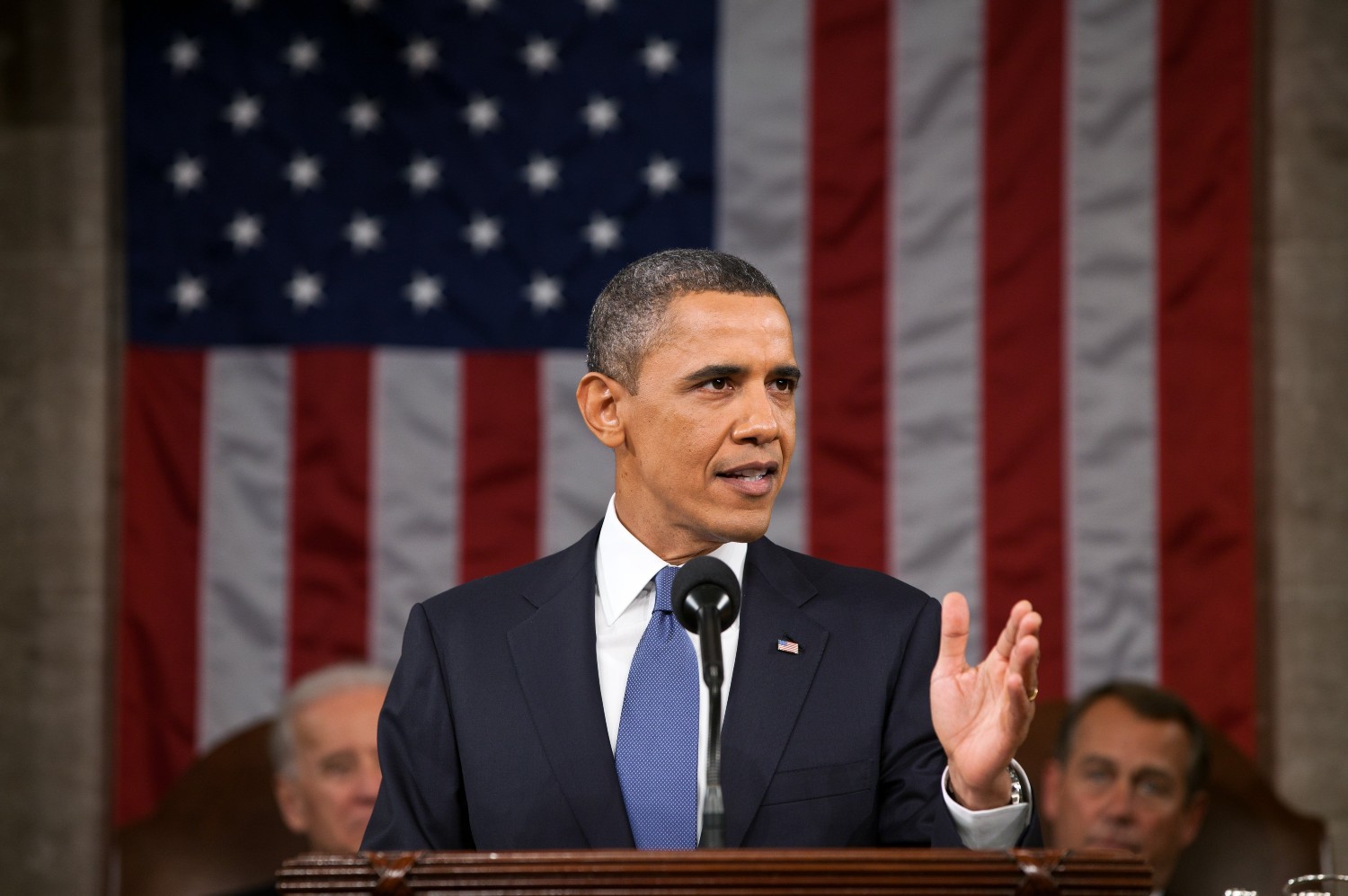
As we near the conclusion of our list of influential Black leaders in history, we must include the 44th President of the United States. After graduating from Columbia University in 1983, Barack Obama moved to Chicago and began working as a community organizer alongside local churches to rebuild communities that were hit by the closure of local steel plants. In 1988 Obama entered Harvard University Law School, where he would later serve as the first Black president of Harvard Law Review.
Upon his election to the Illinois State Senate in 1996, Obama worked on legislation to improve government ethics, enact new consumer protections for payday loans and mortgage loans, and take on police racial profiling. Though Obama lost his first Congressional race in 2000, he came from far behind to win his 2004 U.S. Senate election, and he delivered the keynote address (that Obama largely wrote himself) at the 2004 Democratic National Convention. Just four years later, Obama won the 2008 presidential election and became America’s first Black president. As president, Obama signed into law the largest health care reform legislation since Medicare, led a comprehensive recovery effort to overcome the 2007-09 Great Recession, and negotiated the 2015 Paris Climate Agreement that laid the foundation for worldwide action on climate change.
Alicia Garza, Patrisse Cullors, and Opal Tometi
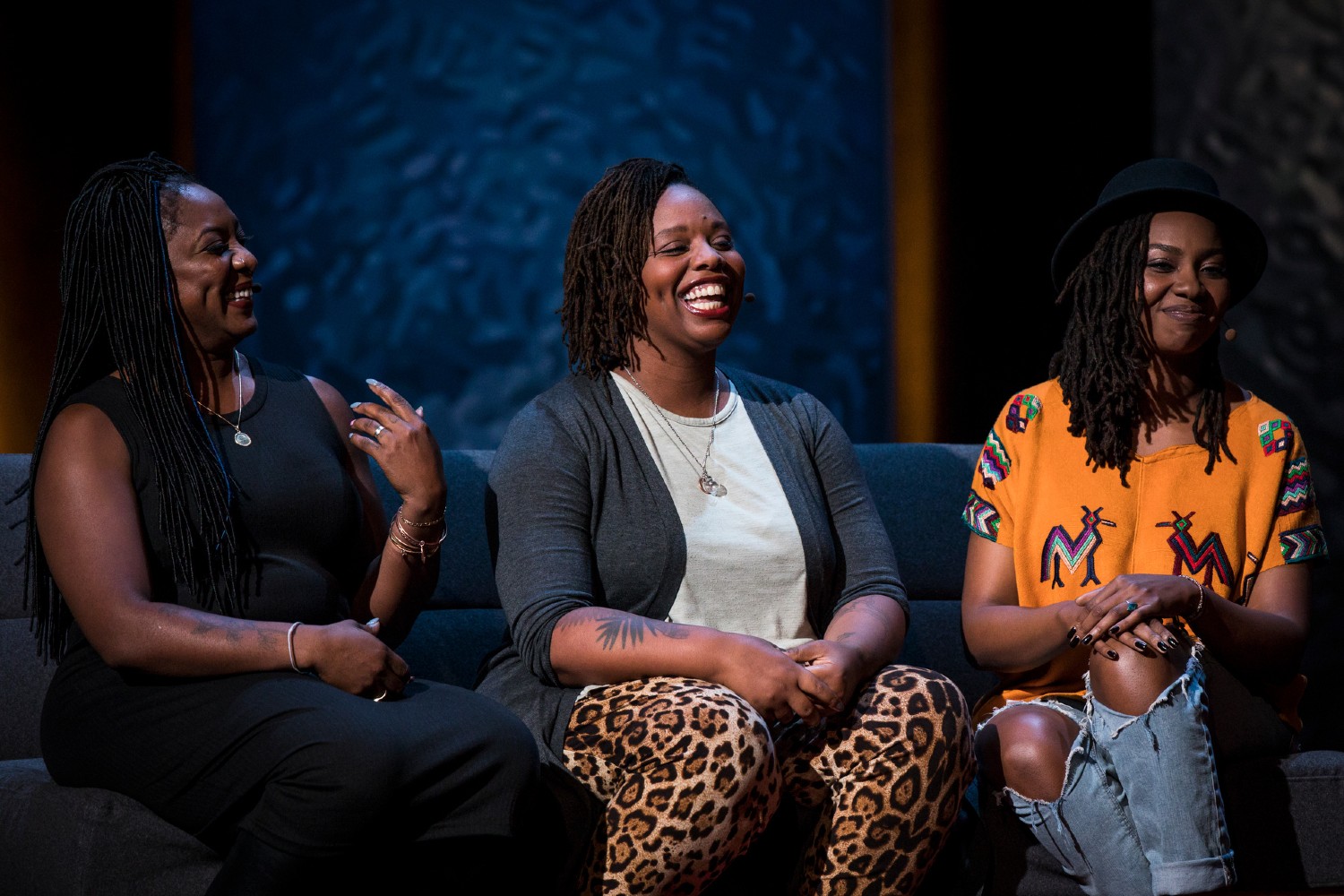
We’re finishing this list by highlighting three contemporary Black leaders who have moved history. After George Zimmerman was acquitted in court for the 2012 murder of Trayvon Martin, three community organizers — Ayo Tometi, Patrisse Cullors, and Alicia Garza — founded the Black Lives Matter movement and dedicated themselves to challenging institutionalized racism wherever it was being used to attack Black and Brown communities. Following the 2014 murder of Mike Brown by a Ferguson, Missouri, police officer, the trio helped organize “freedom rides” to help activists from across the U.S. travel to Ferguson to support local efforts to demand justice for Mike Brown.
From there, Black Lives Matter chapters emerged across the nation to demand justice and encourage Black liberation. Their movement again took center stage in the summer of 2020, following the murder of George Floyd, when some 26 million people joined BLM protests around the world. Not only did the worldwide outrage push federal and Minnesota state prosecutors to indict four Minneapolis police officers for charges relating to Floyd’s death — one so far has been convicted of murder — but the protests also fueled a renewed civil rights movement where activists continue to work to end police violence, secure voting rights, advance economic justice, and achieve comprehensive Black liberation.
If you’re curious about the many fascinating backstories of American history, take a closer look at these best history books to transport yourself into the past, the ten best Black History movies to watch right now, and these books that offer the ultimate crash course on LGBTQ+ history. Hopefully as we rediscover more of our past, we can gain better understanding here in the present, and we can then build a better future together.
The cover photo was provided by the LBJ Library.



